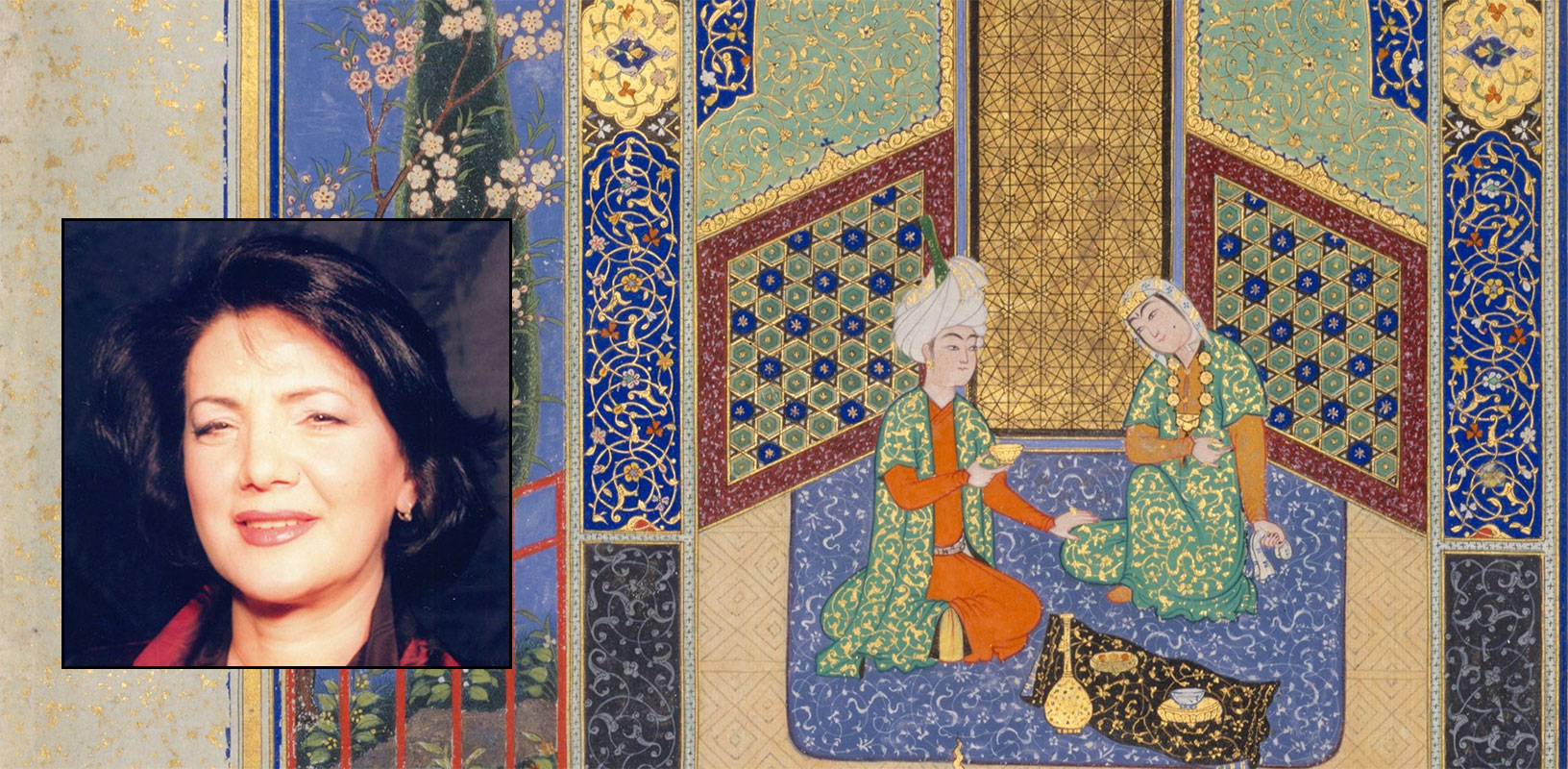Franghiz Ali-Zadeh explores the cosmology of Nizami

The newest orchestral work by Franghiz Ali-Zadeh, NIZAMI Cosmology, is premiered by the Bournemouth Symphony Orchestra under the baton of Ukrainian conductor Kirill Karabits on 6 April.
Azerbaijan-born composer Franghiz Ali-Zadeh, who celebrates her 75th birthday this year, has composed a new orchestral work for the Bournemouth Symphony Orchestra under its Chief Conductor Kirill Karabits, who has done much to champion the composer’s music internationally. The world premiere of NIZAMI Cosmology, inspired by the 12th century poet and scholar Nizami, takes place at the Lighthouse in Poole on 6 April. The concert will also be livestreamed and available on demand until 6 May with a digital ticket.
Franghiz Ali-Zadeh describes how “in Azerbaijan Nizami (c. 1141–1209) is an icon. His work represents a ‘first peak’ for the whole of Eastern poetry. Even the brilliant German poet Johann Wolfgang von Goethe repeatedly refers to Nizami's poetry in his West-Eastern Divan.
“The city where Nizami spent his entire life, Gandja, is the second largest city and former capital of Azerbaijan, an ancient cultural centre. There he died and was buried and a majestic mausoleum was built over his grave which is still constantly visited. Nizami wrote in the Farsi language, which in his time during the early Middle Ages was the universal language of poetry in the East (as Latin was for the West). Since then, many poets have translated Nizami's poems into the Azerbaijani language.
“Nizami's work creates a world of its own with which you can spend a lifetime. Not only was he a great poet, but at that time he also possessed a vast knowledge of history, religion, astronomy, mathematics and medicine. He observed the movements of celestial bodies and tried to explain the logic of their appearance and disappearance, and to understand the size and brightness of stars and comets. He also believed that all these phenomena had a miraculous influence on world events and the destinies of people, on the history of states and on the origin of wars.
“I wrote this music not exactly about Nizami but about his thinking about this big world—the sky, comets and the stars. In everything, he looks for the connection between people and the sky, which is very interesting for me. In the sound of different instruments in this piece, I want to make different and unusual connections. There are many solo instruments within the piece and I make strange connections between their registers — very high and very deep sounds.”
Franghiz Ali-Zadeh, who celebrates her 75th birthday this year, was born in Baku, Azerbaijan in 1947. She studied at the Baku Conservatoire, from which she graduated as a pianist in 1970, and as a composer in 1972. In 1976 she began to teach musicology at the conservatoire, where she has been Professor of Contemporary Music and the History of Orchestral Styles since 1990. Performers who have championed her music include Mstislav Rostropovich, Kirill Karabits, Martyn Brabbins, Yo-Yo Ma, Evelyn Glennie, Ivan Monighetti, David Geringas, Wu Man, Vladimir Tonkha, Elsbeth Moser and the Kronos Quartet
> Read more about Franghiz Ali-Zadeh’s life and music
> Watch Franghiz Ali-Zadeh discussing the new work
This spring also sees the world premiere of Franghiz Ali-Zadeh’s new orchestral work Summer Impression by the Mitteldeutsche Kammerphilharmonie under Jan Michael Horstmann in Magdeburg on 27 March. Kirill Karabits conducts the St Louis Symphony in a performance of Ali-Zadeh’s Nagillar (Fairy-Tales) on 22 April.
Franghiz Ali-Zadeh's music is published by Sikorski.
> Further information on Work: NIZAMI Cosmology
Photo: Khamsa (Quintet) of Nizami (WikiCommons courtesy of Metropolitan Museum of Art)
